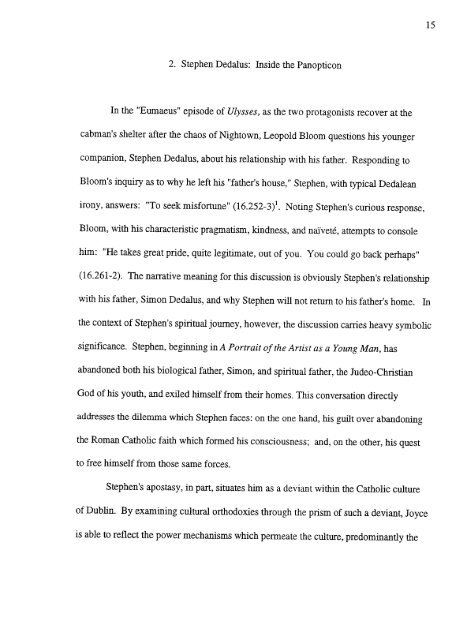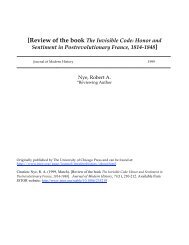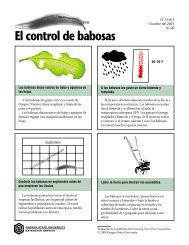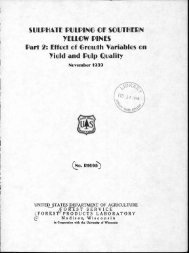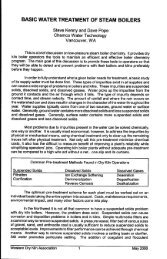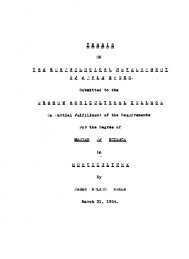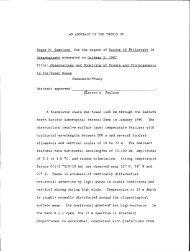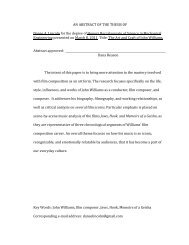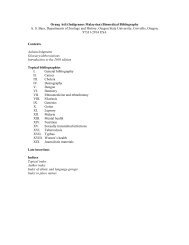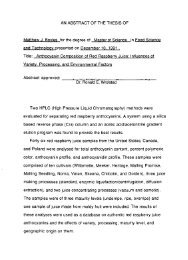Faubourg Saint Patrice - ScholarsArchive at Oregon State University
Faubourg Saint Patrice - ScholarsArchive at Oregon State University
Faubourg Saint Patrice - ScholarsArchive at Oregon State University
Create successful ePaper yourself
Turn your PDF publications into a flip-book with our unique Google optimized e-Paper software.
2. Stephen Dedalus: Inside the Panopticon<br />
In the "Eumaeus" episode of Ulysses, as the two protagonists recover <strong>at</strong> the<br />
cabman's shelter after the chaos of Nightown, Leopold Bloom questions his younger<br />
companion, Stephen Dedalus, about his rel<strong>at</strong>ionship with his f<strong>at</strong>her. Responding to<br />
Bloom's inquiry as to why he left his "f<strong>at</strong>her's house," Stephen, with typical Dedalean<br />
irony, answers: "To seek misfortune" (16.252-3)1. Noting Stephen's curious response,<br />
Bloom, with his characteristic pragm<strong>at</strong>ism, kindness, and naiveté, <strong>at</strong>tempts to console<br />
him: "He takes gre<strong>at</strong> pride, quite legitim<strong>at</strong>e, out of you. You could go back perhaps"<br />
(16.261-2). The narr<strong>at</strong>ive meaning for this discussion is obviously Stephen's rel<strong>at</strong>ionship<br />
with his f<strong>at</strong>her, Simon Dedalus, and why Stephen will not return to his f<strong>at</strong>her's home. In<br />
the context of Stephen's spiritual journey, however, the discussion carries heavy symbolic<br />
significance. Stephen, beginning in A Portrait of the Artist as a Young Man, has<br />
abandoned both his biological f<strong>at</strong>her, Simon, and spiritual f<strong>at</strong>her, the Judeo-Christian<br />
God of his youth, and exiled himself from their homes. This convers<strong>at</strong>ion directly<br />
addresses the dilemma which Stephen faces: on the one hand, his guilt over abandoning<br />
the Roman C<strong>at</strong>holic faith which formed his consciousness; and, on the other, his quest<br />
to free himself from those same forces.<br />
Stephen's apostasy, in part, situ<strong>at</strong>es him as a deviant within the C<strong>at</strong>holic culture<br />
of Dublin. By examining cultural orthodoxies through the prism of such a deviant, Joyce<br />
is able to reflect the power mechanisms which perme<strong>at</strong>e the culture, predominantly the<br />
15


